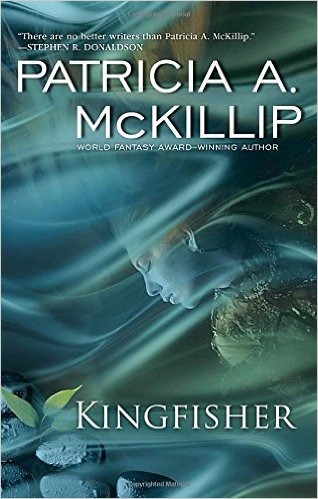 I’ve been reading Patricia A. McKillip’s fiction for more years than I care to admit at this point. It was always different, in one way or another, from her wry and sometimes slapstick humor to her very contemporary sensibility, no matter the universe she was exploring in any given story, to the sometimes devastating honesty of her characters, to the magic of her telling. It was always unique, a matter not so much of no one else being able to tell that story in quite that way, as of that it would never occur to anyone to try.
I’ve been reading Patricia A. McKillip’s fiction for more years than I care to admit at this point. It was always different, in one way or another, from her wry and sometimes slapstick humor to her very contemporary sensibility, no matter the universe she was exploring in any given story, to the sometimes devastating honesty of her characters, to the magic of her telling. It was always unique, a matter not so much of no one else being able to tell that story in quite that way, as of that it would never occur to anyone to try.
Take, as an example of her storytelling, her newest book, Kingfisher. Frankly, I should have seen this one coming. There’s a lot to say about it, and to be honest, I find the prospect quite daunting: it is that seamless, that much a thing unto itself, that much a distillation of everything McKillip’s stories have been.
So, what’s it about?
It’s about a quest laid upon his knights by King Arden, to recover a magical treasure and return it to the keeping of the god Severen. There’s also a counter-quest, a silent, secret endeavor on the part of the devotees of the goddess Calluna, to retrieve this mystical artifact for their goddess, because, to their way of thinking, by right it belongs to her.
It’s about Pierce Oliver, who has lived his whole life with his mother, the sorceress Heloise. He works in a restaurant at Desolation Point on Cape Mistbegotten. One day, while clearing out the crab traps, he encounters a group of knights. One tells him to come to Severluna, where he might find a place in the court of King Arden. Suddenly, he has an overwhelming urge to find his father.
It’s the story of Prince Daimon, a king’s bastard who nevertheless is acknowledged by his father and raised at court, his mother being dead. And then one day he encounters her and she sets him a task.
Those are just the major story lines. There are also a wolf man who’s been trying to tell his daughter something, without success; an ancient ritual, the Friday Nite All You Can Eat Fish Fry at the Kingfisher Bar and Grill, owned by Hal Fisher, a man who commands an immense respect from those in the town; a chef whose creations are irresistible and worse than non-fattening; and others, all of whom add to the richness and mystery of the overarching story.
Milieu – the setting, the universe, the context, whatever you want to call it – in McKillip’s stories is always worth noticing. In the case of Kingfisher, it’s world suffused in a very everyday, matter of fact sort of magic, knights in black leather and silk traveling in long black sedans, credit cards and cell phones, ancient traditions that no one talks about, relayed through a vision that is at once very contemporary and timeless.
Considering all of that, I may be forgiven for finding it difficult, if not next to impossible, to discuss the story intelligibly. All I can say is that it’s McKillip, and it’s McKillip in top form working in the distilled essence of what she’s done before. If you want a point of reference, something to tie Kingfisher to a more familiar body of legend, think about King Arthur and the Quest for the Holy Grail, and the Fisher King with his wound that can only be healed by that same Grail.
And then forget all of that and read the book again.
(Ace Books, 2016)
